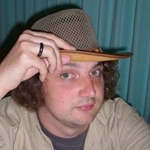
James Hetherington
SSI fellow
University College London
Interests
Scientific software development. Software as scientific communication. Computable publication. Test driven design. Correctness and quality in scientific computing. Reproducibility, provenance and audit for research software. Domain specific languages. Programmability. Supercomputing. Refactoring. Science as a service. Deployment, stability and systems programming. Configuration management. Continuous integration. Multiscale modelling. Code sharing and reuse.
Research
I am a research software developer, combining the skills and experience of a computational scientist with those of a professional software engineer. As leader of UCL’s new Research Software Development team, I work with researchers to produce maintainable, usable, well-tested scientific software that will have a lasting impact.
As a scientific software developer at UCL’s Centre for Computational Science, I worked to bring software engineering best practice into biomedical computational research projects, focusing on high-performance interactive, steerable models and simulations with clinical relevance.
As senior scientific innovator at AMEE UK Limited, I developedsystems to make it easier for organisations to understand their environmental impacts, producing web-based models of carbon footprinting. I conceived, prototyped, and led development and release of AMEE Explorer, winner of a Best of What’s New award in Popular Science Magazine in 2010.
As a senior developer in the Model Management group at the MathWorks I worked on model metadata, on searching for, linking and combining models, on managing the differences between similar models and on workflows for modelling in industrial organisations.
At the DTI Beacon project at the UCL Centre for Mathematics and Physics in the Life Sciences and Experimental Biology (CoMPLEX) I helped to develop a framework for combining models using different biological assumptions, mathematical formalisms, and computational platforms. We used this to build a multi-scale model of glucose homeostasis.
My doctoral work at Cambridge involved the construction of models of the Large Hadron Collider, determining for various proposed fundamental theories whether they can be tested experimentally. I developed a computational platform automating the solution of a broad class of such problems.
Check out contributions by and mentions of James Hetherington on www.software.ac.uk



